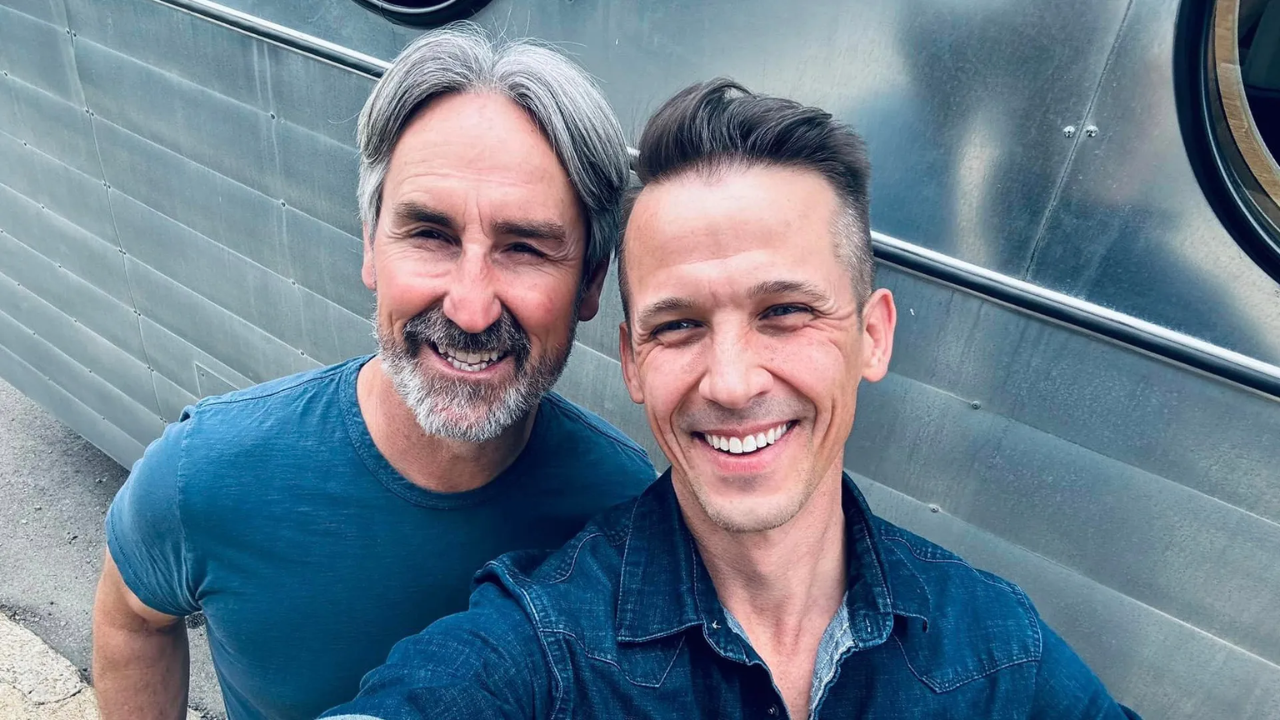
Mike Wolfe, widely known from the television series American Pickers, has become more than just a collector of antiques. His “passion project” revolves around preserving America’s historic artifacts, buildings, and stories. Wolfe’s journey highlights how individuals can play a vital role in safeguarding cultural heritage and revitalizing communities. While his television career brought him fame, his true mission has grown into something much deeper: protecting history in ways that ensure future generations can connect with the past.
Preservation is not just about saving objects—it’s also about maintaining cultural identity and strengthening local economies. According to the U.S. National Park Service, historic preservation helps protect significant sites while also supporting sustainable community development. Wolfe’s work aligns with these principles, combining storytelling, restoration, and community engagement.
By investing in the restoration of old buildings and breathing life into forgotten structures, Wolfe demonstrates how history can become a powerful tool for cultural and economic renewal. His passion project exemplifies what preservation experts describe as “adaptive reuse,” the practice of giving new purpose to historic spaces without erasing their original character.
Historical Roots: Original Obsession and Vision
Wolfe’s interest in discarded objects began in childhood, when he collected items others overlooked. What started as a fascination with bicycles, gas station signs, and vintage Americana evolved into a career that introduced millions to the value of “picking.” Yet, as his reputation grew, Wolfe saw a larger purpose: preserving not just objects, but also the structures and communities that housed them.
This vision aligns with the National Trust for Historic Preservation philosophy that historic preservation goes beyond physical restoration—it is about protecting cultural stories and strengthening identity. The organization stresses that when communities protect their heritage, they also foster pride and long-term sustainability.
Wolfe’s passion project reflects this philosophy by combining restoration with storytelling. Instead of removing artifacts from their context, he often works to preserve them in situ or reintegrate them into spaces where they can be appreciated as part of a broader narrative. His approach echoes global preservation principles championed by UNESCO, which recognize that heritage is essential for identity, diversity, and resilience.
Through this lens, Wolfe’s personal history and professional journey show how one individual’s passion can grow into a movement that mirrors the global call to value and protect cultural heritage.
Antique Archaeology: More Than a Store
Antique Archaeology, Wolfe’s flagship retail brand with locations in LeClaire, Iowa, and Nashville, Tennessee, serves as more than just a shop. These spaces are curated experiences that combine commerce with education, allowing visitors to immerse themselves in Americana. Each item tells a story, and each display reflects Wolfe’s philosophy of preservation with purpose.
Retail spaces like Antique Archaeology demonstrate how cultural heritage can be integrated into community development. According to the U.S. Small Business Administration, small businesses play a critical role in supporting local economies, providing jobs, and attracting tourism. Antique Archaeology contributes to this by drawing visitors from around the world, boosting surrounding businesses, and creating opportunities for artisans.
The stores also highlight the principle of adaptive reuse. By situating his business in historic buildings, Wolfe preserves the structures themselves while giving them new economic relevance. The National Park Service identifies adaptive reuse as a key preservation strategy, noting that it extends the life of historic structures while reducing environmental impacts compared to demolition and new construction.
In this sense, Antique Archaeology is both a business and a preservation project, showing how heritage can be leveraged to create value for communities and economies while keeping history alive.
Historic Restoration: Buildings That Tell Stories
One of the most striking aspects of Wolfe’s passion project is his investment in historic restoration. From old gas stations to entire industrial complexes, Wolfe has worked to revitalize structures that many considered beyond saving. His efforts bring together artisans, historians, and community members to breathe life back into these spaces.
The practice of historic restoration has broad social and economic benefits. A report by the Advisory Council on Historic Preservation notes that preservation projects create jobs, stimulate local investment, and strengthen cultural identity. Restoring a single historic building can generate ripple effects throughout a community, encouraging tourism and inspiring further development.
Wolfe’s projects reflect these principles. By restoring buildings in Tennessee and Iowa, he helps preserve regional identity while also creating usable spaces that benefit local residents. This mirrors the global approach recommended by UNESCO, which promotes integrating historic preservation into urban development strategies to ensure sustainable and inclusive growth.
Each building Wolfe restores is more than just a structure—it is a living story. By reviving them, he preserves cultural memory while also providing a foundation for new stories that future generations can create within those spaces.
Crafting a Narrative: Storytelling as Mission
Wolfe’s passion project is not limited to physical spaces. At its core, it is about storytelling—using objects and buildings to connect people to history. Every artifact and every building has a human story behind it, and Wolfe sees preservation as a way to amplify those voices.
Storytelling is central to cultural preservation. According to UNESCO’s Intangible Cultural Heritage program, traditions, narratives, and oral histories are as important as physical monuments in keeping cultures alive. Wolfe’s work often highlights this, ensuring that stories tied to objects and structures are not lost.
Through his television series, retail spaces, and restoration projects, Wolfe uses narrative to engage audiences and communities. This not only increases awareness of preservation but also builds emotional connections that encourage public support. The National Endowment for the Humanities emphasizes the importance of storytelling in education and cultural preservation, noting that narratives make history accessible and meaningful to broader audiences.
In this way, Wolfe’s mission bridges the gap between entertainment and education. By framing preservation through stories, he ensures that cultural heritage resonates with people today while remaining relevant for future generations.
Community Engagement: Building More Than Structures
At the heart of Wolfe’s passion project is community engagement. His restoration efforts often involve collaboration with local residents, artisans, and historians, ensuring that projects serve more than just aesthetic purposes. They become community assets.
Community engagement is essential for successful preservation. The National Trust for Historic Preservation highlights that preservation efforts thrive when local communities are actively involved. Engaging residents builds trust, fosters pride, and ensures that restored structures meet community needs.
The economic impact is also significant. According to the U.S. Department of Commerce, heritage tourism is a multi-billion-dollar industry that supports jobs and drives economic growth in local communities. Wolfe’s projects contribute to this by attracting visitors, boosting local businesses, and encouraging cultural tourism.
Additionally, Wolfe’s approach supports social cohesion. By revitalizing gathering places such as gas stations or historic storefronts, he creates spaces where communities can connect. This reflects the global principle of “culture for sustainable development,” outlined by UNESCO, which emphasizes the role of heritage in promoting inclusive, resilient societies.
Through these efforts, Wolfe’s passion project demonstrates that preservation is not just about saving buildings—it’s about strengthening the communities that surround them.





